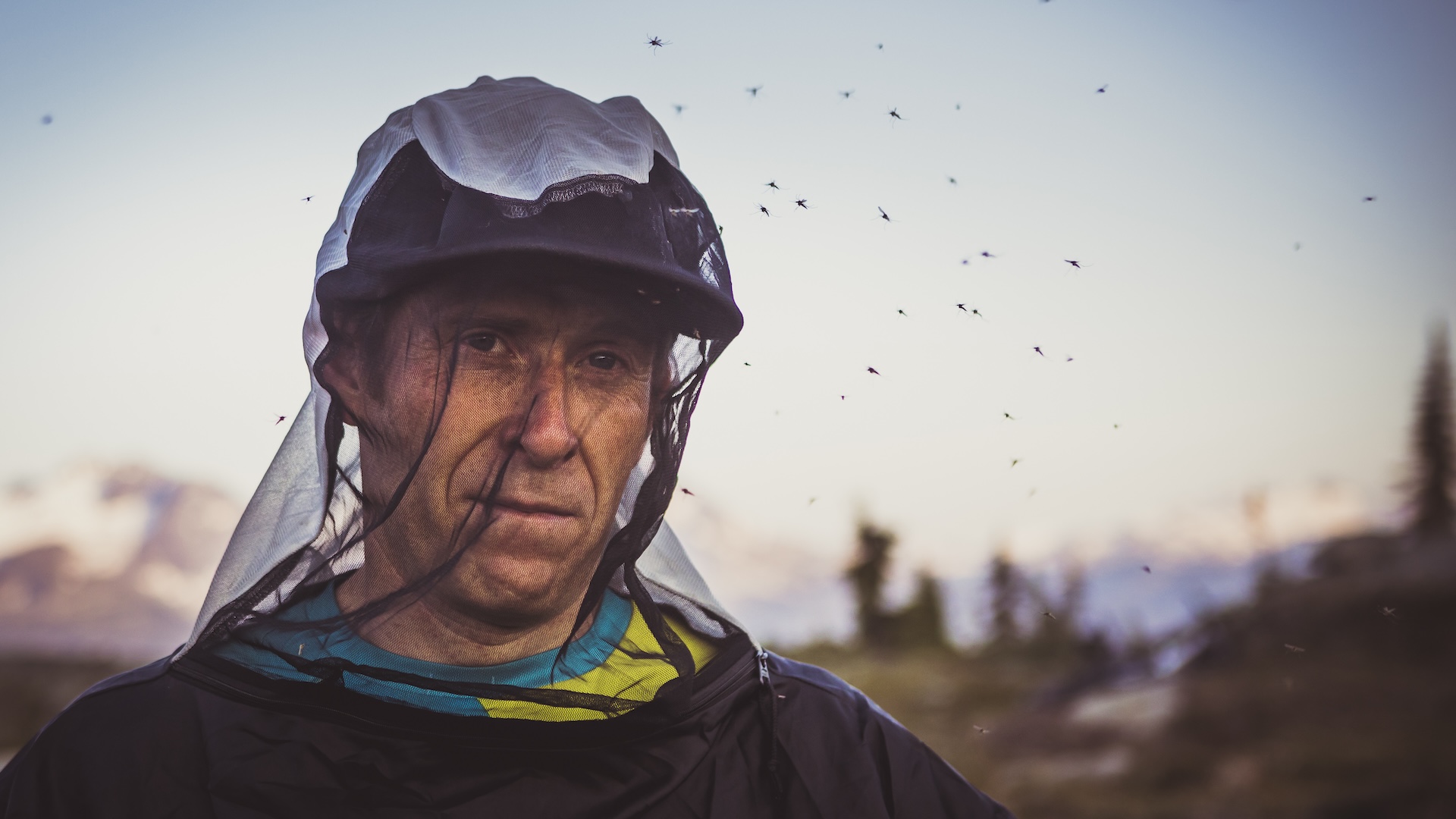Why are flies attracted to humans?
Flies are attracted to our pungent "cloud of effervescence," experts say.

There's hardly a more irritating noise than the sound of a fly buzzing around your head. These tiny insects have the uncanny ability to track down humans and nimbly dodge our attempts to swat them away.
But why do flies hang around us? The reason depends on the species of insect, experts say.
"For a certain group of them, they're interested in us because we are mammals with warm blood that they can feed on," Jonathan Larson, an entomologist at the University of Kentucky, told Live Science. "That's things like mosquitoes and deer flies and a few others, where they are attracted to our carbon dioxide that we are expelling out as we breathe."
Human bodies are easy for flies to find because we are constantly releasing odors that the insects are naturally attracted to, like carbon dioxide, lactic acid and carboxylic acid, Jody Gangloff-Kaufmann, an entomologist at Cornell University and a senior extension associate at the New York State Integrated Pest Management Program, told Live Science.
Related: Why are flies so hard to swat?
Those specific smells, however, depend on the person.
"If you could see smell, you would see a cloud of effervescence around the bodies of all of the people that you know," Sammy Ramsey, an assistant professor of entomology at the University of Colorado Boulder, told Live Science. "Everybody's oil compositions and the aerosolized molecules that are coming off of their skin — those are different based on your genetics and your diet and the activities that you've gone about that day. But some people are much more attractive than others."
Get the world’s most fascinating discoveries delivered straight to your inbox.
Sweat slurpees
Whereas parasitic flies stick near us to suck our blood, other species, like houseflies (Musca domestica), are more interested in the nutrients on our skin.
"Our skin is covered in stuff that they can drink up. So there's carbohydrates and proteins and all kinds of stuff in our sweat and just in our skin oils, and they can lick it up. It's like a 7-Eleven." Larson said. "They can get lots of things real fast just by swiping [their] sponging mouth part across that surface and slurping it up."
But flies don't rely on sweat for sustenance, Ramsey said. While some do imbibe the nutrients on our skin, these are very dilute, so it's likely that they primarily lap up sweat to replenish salt concentrations in their bodies, he said. Flies are more likely to feed on our food when they're looking for a heartier meal. While some species, including houseflies, prefer decomposing matter, they are not picky eaters and will graze on a bit of everything. To break down solid food, these flies vomit up digestive enzymes to liquefy their meal and then suck it up through their straw-like proboscises.
Systems for sensing potential food sources vary among the 110,000 fly species, and even between fly sexes. Many rely on tiny hairs on their antennae or body that have sensory receptors for specific odors. These sensory cells can detect a meal from miles away and send different signals to the fly's brain depending on which chemicals the cells find in the air.
If a fly sniffs something it likes, it buzzes closer and lands on it. Flies have taste receptors on their feet, so they can quickly tell if something is edible. This comes in handy when they want to grab a fast snack before being swatted away by their host. Flies also have large, bulbous eyes made up of thousands of individual lenses that are extremely sensitive to movement and shaped in a way that allows a nearly 360-degree field of view. Many flies use visual cues to find food and escape danger.
Houseflies can be particularly annoying because they are naturally curious creatures, Ramsey said.
"It's this back-and-forth between their curiosity and their capacity to always detect movement and to relate that movement to potential danger that allows them to constantly land on you and other surfaces," Ramsey explained. Yet this natural curiosity also makes them perfect vectors for spreading illnesses, including cholera, tuberculosis and typhoid fever.
"They land on poop. They get their feet all dirty. They don't wash their hands, and then they come and they throw up on your sandwich," Larson said. "So they're touching all that and then spreading germs."
While there's no one-size-fits-all method for making yourself less attractive to all fly species, Gangloff-Kaufmann said wearing long clothing and repellents like DEET or oil of lemon eucalyptus can help deter some of them.

Margaret Osborne is a freelance science journalist, copy editor, writer and producer based in Utah. Her work has appeared in Smithsonian magazine, The Scientist and on WSHU Public Radio, among other outlets. She has a bachelor's degree from Stony Brook University in journalism and German language and literature.
You must confirm your public display name before commenting
Please logout and then login again, you will then be prompted to enter your display name.



